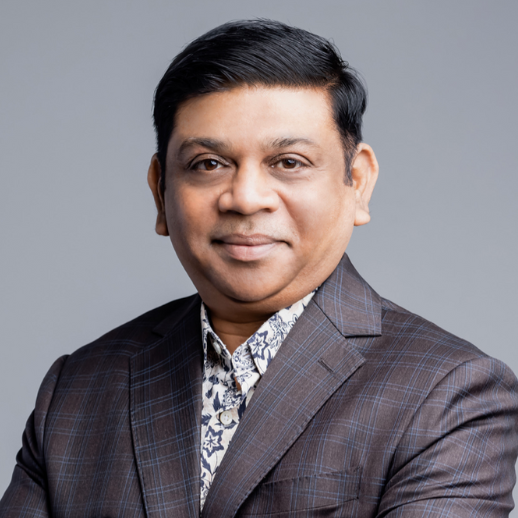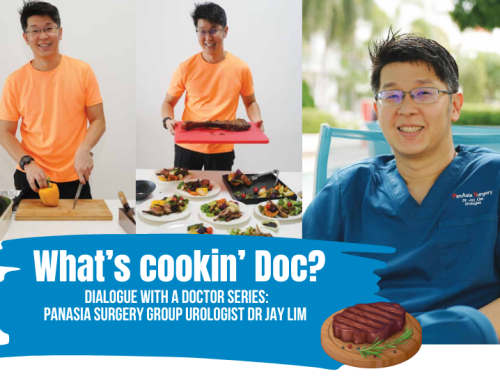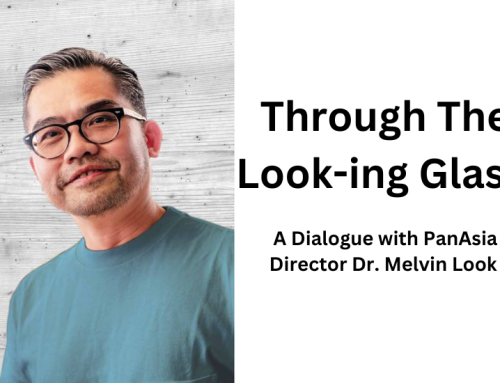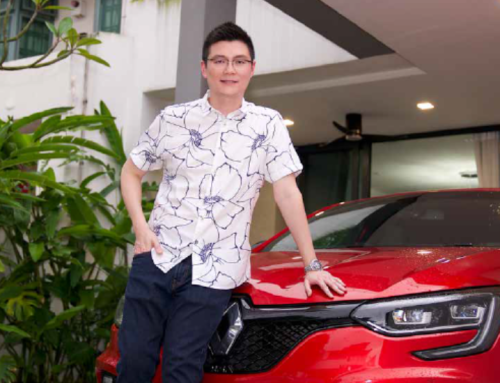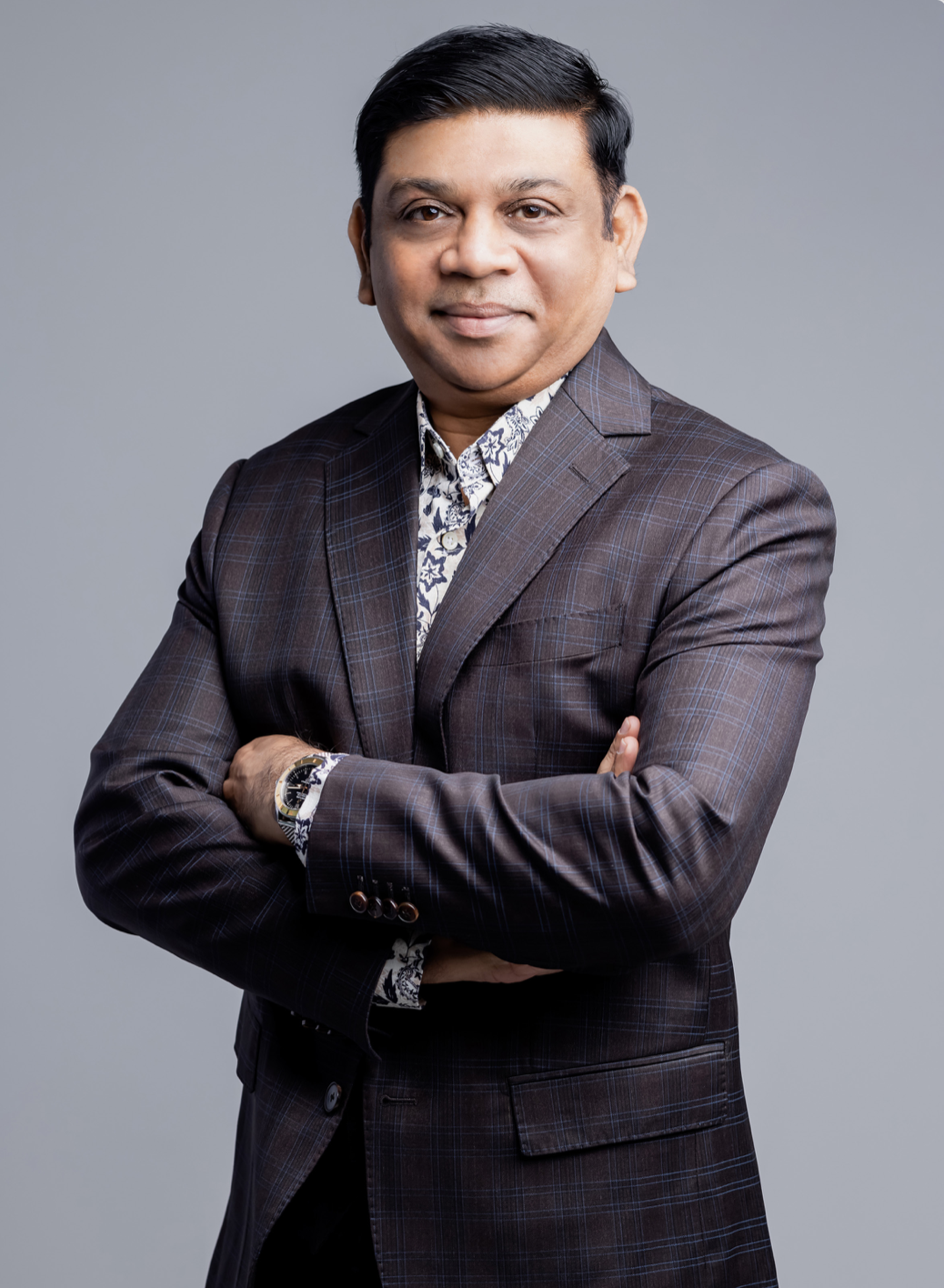
The word “Yoga” is derived from the Sanskrit word “Yuj”, which means “to join” or “to unite”.
It is an ancient spiritual discipline that has been practiced for thousands of years. Yoga is both an art and science of healthy living; it focuses on bringing harmony between the mind, body and spirit; forging unity between Man and Nature.
Catapulted to greater popularity and acceptance worldwide during the fitness and exercise boom of the 1970s, scientific research on the practice of yoga has provided evidence of its physical and mental benefits.
Over the decades, its popularity has soared even further. Today, there are roughly 300 million people around the world who regularly practice this ancient discipline, including a sizeable number in Singapore.
In this issue, we have the pleasure of speaking with Dr Aneez D.B Ahmed,
Medical Director and Senior Consultant Thoracic Surgeon at International Centre for Thoracic Surgery.
An experienced doctor in the field of thoracic surgery and an avid yoga practitioner, Dr Aneez talks to Prime about his perspectives on health and wellness issues, while also sharing about his passion for his chosen field and the ancient art of yoga.
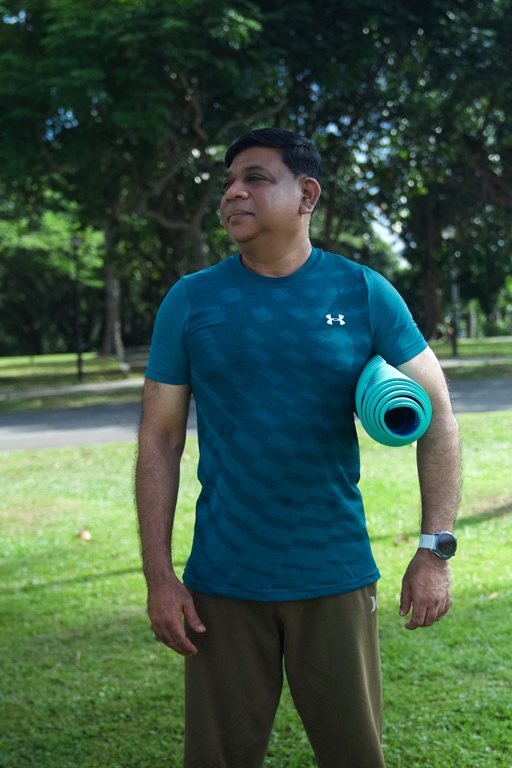
Good evening, Dr Aneez! To start, we would like to thank you for taking time out from your busy schedule to speak with Us.
It is a pleasure and a privilege. Now let us go straight into the interview: tell us what do “health” and “wellness” mean to you?
DR ANEEZ D.B AHMED: Good evening to you too! It is a pleasure to be able to spend this lovely evening speaking with you as well.
To me, it is quite simple: “health” generally refers to an individual’s physical well-being, while “wellness” goes beyond this; it includes an individual’s physical and mental well-being. For me, I have always been health-conscious, even from a young age. I have practised yoga since was 18. And though there have been periods of discontinuity in my life due to work, I always get myself back on track. I guess you can say that health and wellness have always been an integral part of my life, something I will always value greatly.

You spoke about periods of discontinuity in your life and getting back on track. What prompted you to do so (i.e. get back on track)?
Do you think you now have a healthy lifestyle? And how do you balance between health and work?
AA: While I was training to be a doctor, having a healthy lifestyle was more of an afterthought than a priority.
But as I grew older and reached a certain age, I realised that a person needs to be fit in order to continue the work that he/she is doing.
Therefore, I think that maybe people’s perspectives change as they grow older. We start to realise that we can no longer do the same things (including work) the way we used to be able to.
To be honest, it is always difficult to find a balance between work and the time you want to set aside to look after your health and fitness. It is pretty much a dilemma most working adults face. At the end of the day, I believe it is a personal choice. Even as you are passionate about your work, you should also realise that investing in your health will eventually lead to better outcomes at work.
It is actually rather synergistic.
What differences do you see in the way(s) people from the East and West view and pursue health and wellness?
AA: I think most countries in the East pursue the concept of wellness which, as mentioned earlier, includes both physical and mental well-being. There is more emphasis placed on taking care of one’s mental health. Whereas in the West, I think the concept of staying healthy is often more associated with exercising and taking care of one’s diet. Thus, I guess you can say that, at least in my opinion, populations in the East adopt a more holistic approach. They take into account the aspects of family and spiritual well-being.
Overall, I would say that I find Eastern philosophies on health and wellness to be more balanced in their approach.
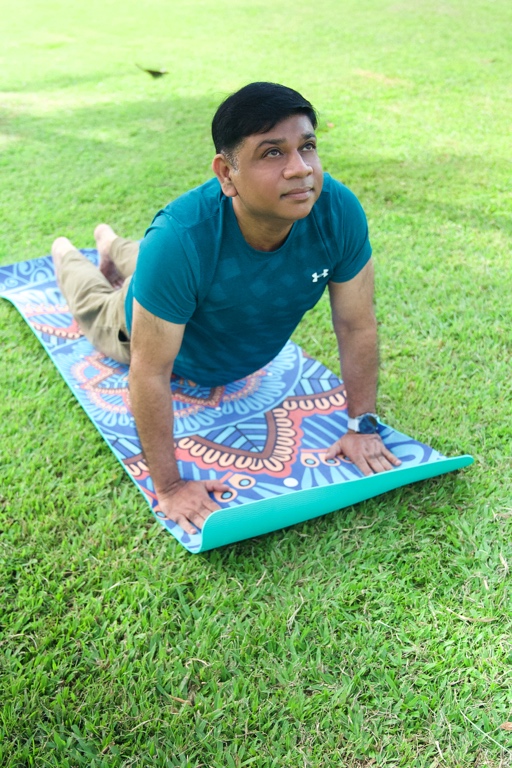
Let us switch topics and talk about your practice instead. What made you choose thoracic surgery as your speciality?
AA: remember when I was growing up and studying cardiothoracic surgery, cardiac surgery was all the rage among medical students. And it is a lucrative practice as well! But that was not a decisive factor in my choice of specialisation. My interest was (and still is) in thoracic oncology, especially within the realm of lung cancer. Furthermore, I found thoracic surgery to be much more challenging. It helped that this particular specialisation had a huge potential for growth at that time. Looking back, I guess I can say that everything worked out great and made the right decision in choosing thoracic oncology.
Here’s an accolade: you are the first surgeon in ASEAN to be robotic certified. What makes robotic thoracic surgery different from traditional open surgery?
AA: Traditional open surgery involves making big cuts in the chest, which can be quite painful. Recovery is also prolonged. This, in turn, leads to higher chances of complications and an extended hospital stay. With robotic thoracic surgery, the incisions are smaller. This means less pain and faster recovery for the patient. The patient can then get back to his/she normal life as soon as possible and proceed on to further oncological treatment earlier, if needed.

Let us switch gears again. In terms of diet, do you pay much attention to what you eat?
AA: As a matter of fact, I do pay a lot of attention to what I eat. As the famous saying goes, “you are what you eat”. If you want to lose weight, you will need to eat less. And if you want to be healthy, you have to eat certain types of food that suit your body and your culture.
That is interesting, especially the part about a diet suiting one’s body and culture. I guess that if someone was to follow a certain dietary fab, it could sometimes mean consuming food that is unsuitable. Are you on a certain type of diet or have you ever gone on one before?
AA: No, I am not and have not been on any particular type of diet. However, as I grow older, I limit the amount of carbohydrates I consume, as well as the types and quantity of food I eat. I believe that instead of going on a certain type of diet, the timing of when you eat and your individual eating habits matter more.
Are you an advocate of supplements?
AA: Generally, I do not recommend the use of supplementation to others. However, I personally do take multivitamins and probiotics. I think these are important in the present day and age to keep our gut flora intact. There is lot of new research coming out about how our body’s gut microbiome greatly influences our health. Our gut is an important aspect of health that more people should pay attention to.
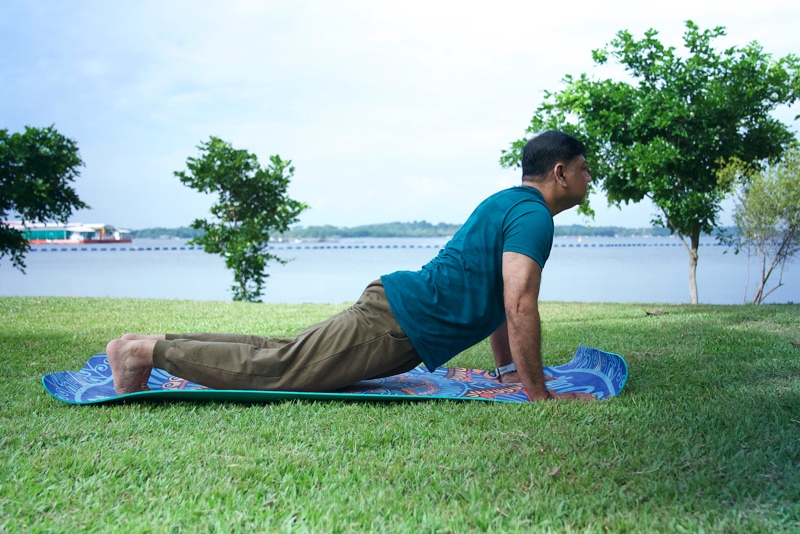
Have you always been physically active since young? What type of physical activities do you do to keep in shape nowadays?
AA: When I was young, I was indeed very involved in sports. And continued to do so, even after my college days. While there have been some changes in the sports | engage in between my days of youth and now, yoga has been a constant throughout my life. I think yoga has always been an integral part of my life. I always come back to it.
Nowadays, I practise yoga five days a week; every morning, if possible. Besides yoga, I also play badminton at least once a week and visit the gym once a week as well.
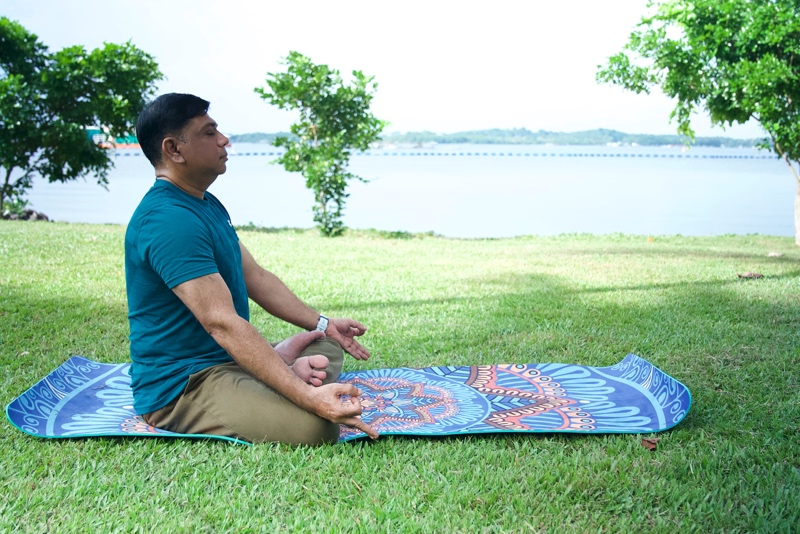
Yoga is known to help bring about both physical and mental benefits. Some even say it helps in spiritual aspects.
How has yoga shaped your life and work?
AA: Indeed, yoga fits into the Eastern philosophies of health and wellness I have spoken about earlier which take care of both physical and mental health. Besides helping me to keep fit, yoga’s incorporation of meditation and controlled breathing also helps me to better manage my daily stresses. But far beyond these obvious benefits, I think yoga has also instilled discipline in me. This, in turn, has shaped how I work.
It has also influenced how I live my life. Yoga has given me mental calmness and strength during challenging situations in my surgical career. I think the practice of yoga can bring about many great benefits. And if you are not averse to trying new things, I recommend you can give it a go as well. Age should not be a barrier. I am the perfect example.
Does your family exercise together with you?
AA: It really depends on the timing at which we exercise. Now that my children have grown up, we have different schedules. Thus, much more often than not, we exercise on our own. However, every now and then, we do find time to exercise together. It adds an extra element of excitement when we do things together as a family, and it helps in family bonding.
How many hours of sleep do you get daily? Is it adequate rest?

AA: I get about five to six hours of sleep per night, which would consider to be adequate rest in my speciality. I think that as long as you sleep well and you wake up feeling refreshed, that can be considered as adequate rest. I have to admit that I am also not partial to a power nap in the afternoon as well.
Mental health has been a consistent highlight of this interview. Its importance cannot be emphasised enough. In that respect, do you often find yourself under stress? Has the practice of yoga helped with your coping of stress?
AA: Stress is a phenomena and response that is very common when practising in the surgical field. You find yourself under duress during surgery and after surgery. But after a while, you start to realise that these are normal body responses and you learn to cope with them as you grow more experienced. I think the best way to manage it is through meditation which is, as you mentioned, also part of my yoga regime.
The practice of yoga has helped me to keep calm.
Moving beyond the personal, let us now talk about some social matters. What do you think are some of the challenges that modern life poses to health?
AA: I think there are two huge challenges that modern life poses to health: social media and time management. These challenges are related and intertwined.
People are spending a lot of time on social media. You see people constantly looking at their handphones no matter where they are. This is very unhealthy. It takes away time that we could dedicate to exercising or doing other physical activities.
I think it is a balancing act. I am not saying that social media is bad. It may sometimes be necessary as a business tool, but indulging in social media for personal entertainment can be quite mentally debilitating in the long run. I suggest that people limit their time online to a set number of hours so that it does not take up most of their day.
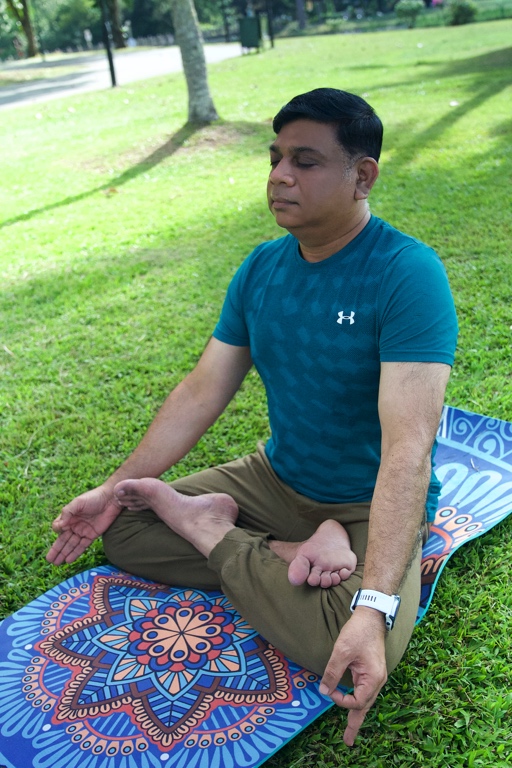
How do you think COVID-19 has changed the way people view and value health?
AA: I think there is no doubt that the pandemic has drastically changed the way people view healthcare and how they value health. Now, more people are conscious of COVID and how it is spread. They are taking steps to take care of themselves, even as some may be initially reluctant and resistant to doing so. I also find that people are now trying to be more active because a lot of information has been put out there about how people can and should take care of their lung health. For some tips on this, you can take a look at my website.
Besides, the nature of the pandemic has also shown that how healthcare is being tackled in one country can inadvertently affect the rest of the world. The interconnectedness of the entire world means diseases can spread within a matter of days globally. Nobody is isolated or immune from this. It emphasises the importance of staying healthy even more.
In your line of work, what aspects of health do you often see people neglecting?
AA: Thoracic surgery patients often find themselves trying to do things which they cannot do. This frequently involves trying to exercise post-surgery. The most physically debilitating part for them is probably the loss of effort, tolerance to exercise and normal daily activities. This, unfortunately, is something I see very often in my line of work. Aside from this, some people with deskbound jobs also often forget to be more physically active.
We have come to the end of our interview. Thank you very much for your time, Dr Aneez. Some final words of advice for our readers?

AA: To stay fit, exercising is necessary. But to consider yourself x”healthy”, you have to be happy. This means being in the right headspace. These health and wellness habits are best picked up at a young age, but that does not mean it is too late to start. Just as it applies to picking up yoga, age is not a barrier to cultivating good healthy habits.
I think the Singaporean male population benefits from National Service, which gives them a head start in staying fit. If they can maintain what they have learnt in camp and carry these habits forward for the rest of their lifetimes, that would be good. But no matter whether you are male or female, the most important commodity you can invest into your health is time. Hence, take the time to exercise and to meditate.
It will be good in the long run.
Dr Aneez D.B Ahmed
INTERNATIONAL & CENTRE FOR THORACIC SURGERY
Mt Elizabeth Novena #10-38
38 Irrawaddy Road, Mt Elizabeth Novena
Specialist Centre, Irrawaddy Rd, #10 38, Singapore
329563
PRIME
Watch Dr Aneez D.B. Ahmed video here.


